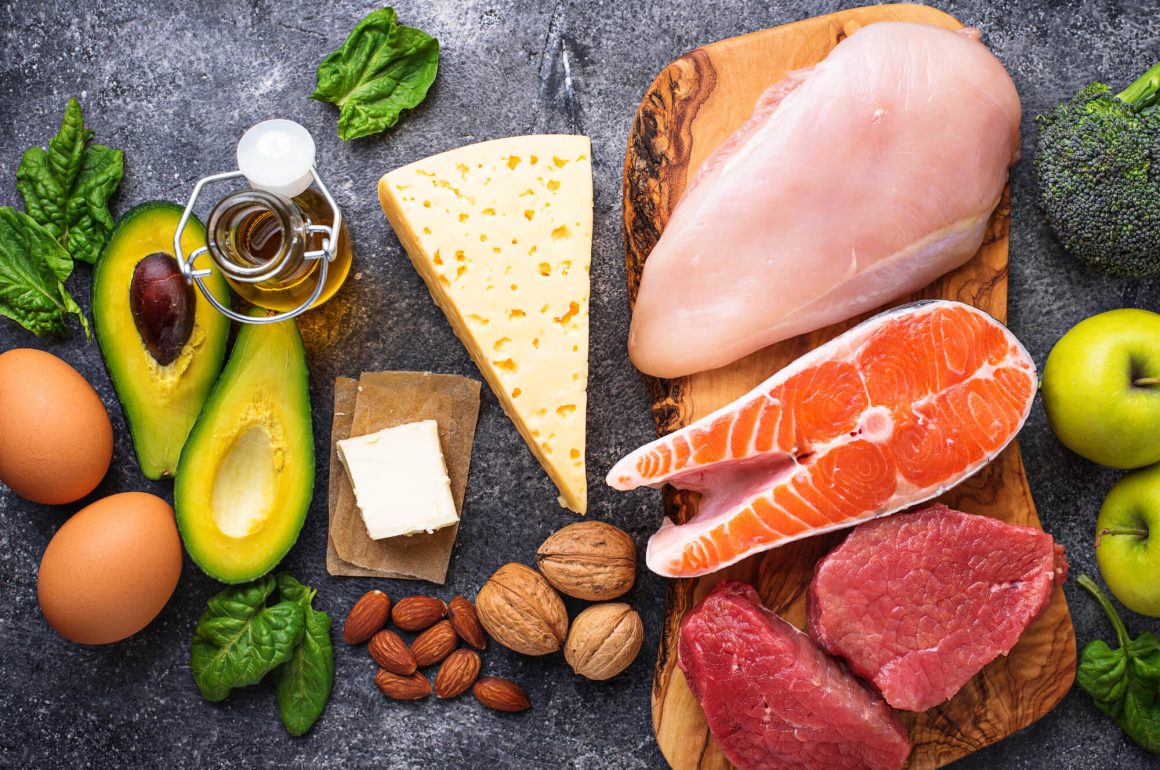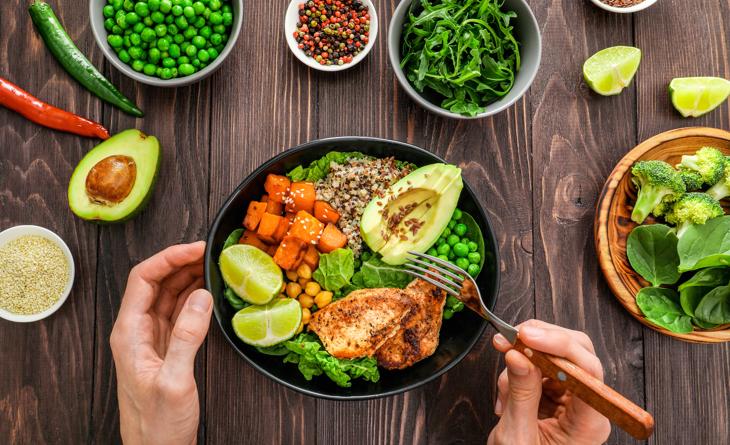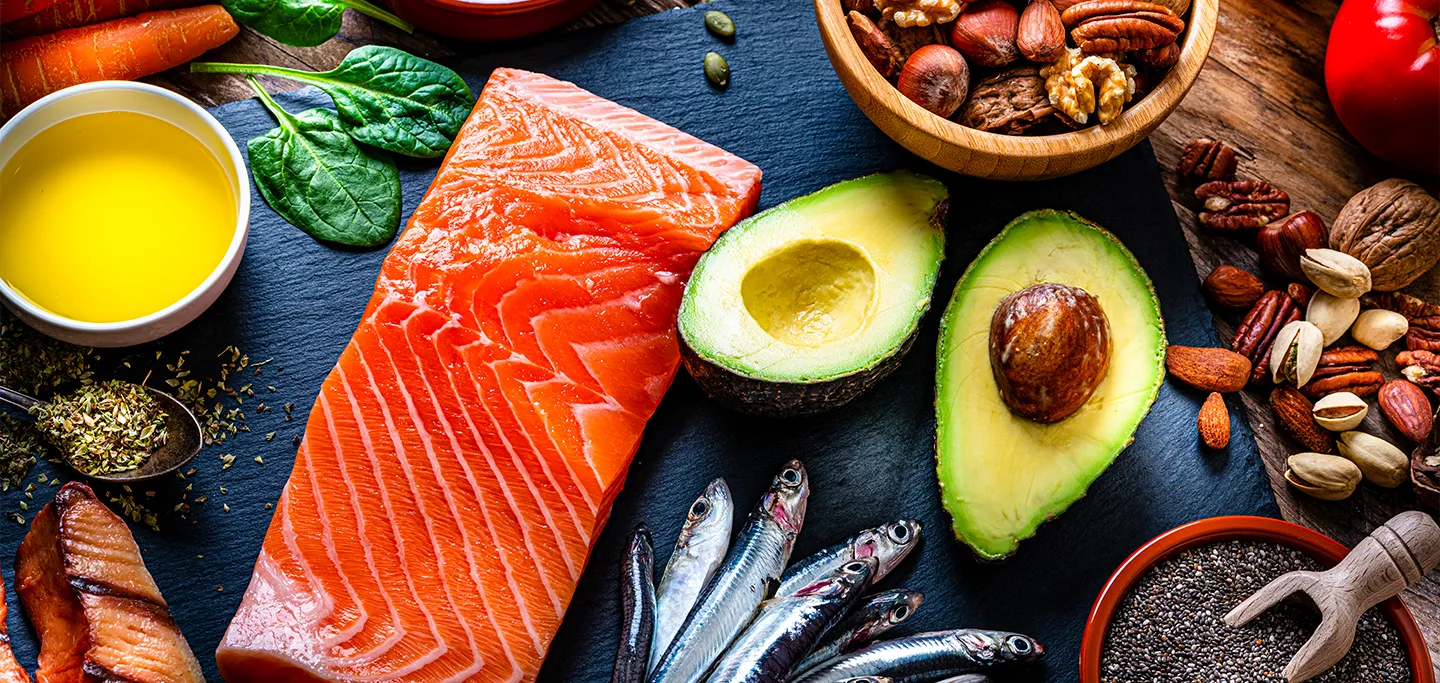What Is the Ketogenic Diet - Everything You Need to Know
Discover everything about the ketogenic diet, its benefits, how it works, and tips for beginners. Learn to transform your nutrition and achieve your health and wellness goals.
The ketogenic diet has been gaining tremendous popularity in the United States, especially among people seeking rapid and efficient weight loss. But do you really know what this diet is and how it works in your body?
With growing interest in alternative methods of healthy eating, it's fundamental to understand the principles, benefits, and necessary precautions before embarking on this journey. The ketogenic diet isn't just a passing trend, but rather a scientifically-based nutritional protocol that can bring significant results when properly executed.
In this complete article, you'll discover everything about the ketogenic diet, from its basic fundamentals to practical tips for implementing it safely and efficiently in your routine. Understanding proper nutrition is just as important as knowing meditation practices for overall wellness.
Navigation Menu
- What Is the Ketogenic Diet
- How It Works in the Body
- Allowed and Forbidden Foods
- Benefits and Risks
- Who It's Indicated For
- How to Start in Practice
- Weekly Menu Example
- Supplementation Tips
What Is the Ketogenic Diet
The ketogenic diet, also known as the "keto diet," is a nutritional protocol characterized by high consumption of healthy fats, moderate protein intake, and extreme reduction of carbohydrates. The name derives from the word "ketosis," a specific metabolic state the body reaches when it starts using fat as its main energy source.
Unlike conventional nutritional recommendations, where carbohydrates represent 40-60% of daily calories, the ketogenic diet proposes a completely different distribution: approximately 70-80% of calories from fats, 15-25% from proteins, and only 5-10% from carbohydrates.
This drastic change in macronutrient proportion forces the body to adapt its metabolism, shifting from a glucose (sugar) burning state to a fat-burning state, known as nutritional ketosis. This is fundamentally different from other approaches like the standard low-carb diet methodology.

How It Works in the Body
The functioning of the ketogenic diet is directly related to the ketosis process. Under normal conditions, our body uses glucose (from carbohydrates) as the main fuel for cells, tissues, and organs.
When we drastically reduce carbohydrate consumption to less than 50 grams per day, the body depletes its glucose reserves stored in the liver and muscles. At this moment, the body needs to find an alternative energy source to maintain its vital functions.
This is where ketosis comes in: the liver begins breaking down stored fats (and also fats consumed in the diet) into smaller molecules called ketone bodies. These substances become the body's new preferred fuel, especially for the brain.
The three main ketone bodies produced are: acetoacetate, beta-hydroxybutyrate, and acetone. This process not only uses body fat as energy but can also provide greater satiety and stability in energy levels throughout the day.
Allowed and Forbidden Foods
Foods Allowed in the Ketogenic Diet
Proteins and Healthy Fats:
- Red meats (beef, pork, lamb)
- Poultry (chicken, duck, turkey)
- Fish and seafood
- Whole eggs
- Cheeses (preferably harder ones)
- Avocado and its pulp
- Nuts, walnuts, almonds
- Seeds (chia, flaxseed, sesame)
Oils and Fats:
- Extra virgin olive oil
- Coconut oil
- Butter
- Lard
- Avocado oil
Low-Carb Vegetables:
- Green leaves (lettuce, arugula, spinach)
- Broccoli, cauliflower, cabbage
- Zucchini, eggplant, cucumber
- Bell peppers, asparagus, mushrooms
Foods Forbidden in the Ketogenic Diet
Simple and Complex Carbohydrates:
- Bread, pasta, cookies
- Rice, quinoa, oats
- Potato, cassava, yam
- Beans, lentils, chickpeas
- Refined sugar, honey, syrups
High-Sugar Fruits:
- Banana, apple, mango
- Grapes, pineapple, orange
- Dried fruits and natural juices
Industrialized and Processed Foods:
- Soft drinks and sugary beverages
- Sweets, conventional chocolates
- Ice cream, cakes, desserts
It's important to remember that some naturally healthy foods, like certain fruits and legumes, are temporarily excluded from the diet due to their carbohydrate content.

Benefits and Risks of the Ketogenic Diet
Proven Benefits
Efficient Weight Loss: The ketogenic diet can provide faster weight loss compared to other diets, especially in the first weeks. This happens both from direct fat burning and reduction in water retention.
Appetite Control: Ketone bodies and high fat consumption can significantly increase satiety sensation, naturally reducing hunger between meals.
Blood Sugar Stabilization: By drastically reducing carbohydrates, there's less fluctuation in blood glucose levels, which can benefit people with insulin resistance.
Risks and Side Effects
Adaptation Period: The first days may include symptoms like headache, fatigue, irritability, and difficulty concentrating, known as "keto flu."
Digestive Problems: The abrupt change in diet can cause constipation, especially due to reduced fiber consumption from fruits and cereals.
Nutritional Deficiencies: Severe restriction of food groups can lead to deficiency of vitamins, minerals, and antioxidants present in carb-rich fruits and vegetables.
Liver and Kidney Overload: The significant increase in fat and protein processing can overload these organs, especially in people with pre-existing problems.
Who It's Indicated For
Medical Indications
Clinically, the ketogenic diet is widely recognized as treatment for refractory epilepsy, especially in children whose seizures don't respond adequately to conventional medications.
It's also being studied for conditions like type 2 diabetes, metabolic syndrome, and some neurodegenerative diseases. For these cases, medical supervision is absolutely mandatory.
Important Contraindications
The ketogenic diet is NOT indicated for:
- Children and adolescents in growth phase
- Pregnant and breastfeeding women
- People over 65 years old
- Individuals with liver or kidney problems
- People with history of eating disorders
- Those with certain cardiovascular conditions
It's fundamental to consult a doctor and nutritionist before starting any ketogenic protocol, regardless of the objective.
How to Start in Practice
Mental and Physical Preparation
Before starting the ketogenic diet, prepare yourself mentally for the changes. The first 3-7 days can be challenging due to adaptation symptoms. Stay hydrated and consider reducing exercise intensity during this initial period.
Macro Calculation
For an efficient ketogenic diet, you need to calculate your caloric needs and divide macronutrients approximately like this:
- 70-75% of calories from fats
- 20-25% from proteins
- 5-10% from carbohydrates (maximum 20-50g per day)
Gradual Transition vs. Abrupt Change
Some people prefer making the transition gradually, reducing carbohydrates over a week. Others opt for immediate change. Both approaches can work, but gradual may reduce initial symptoms.
For beginners seeking comprehensive guidance, I recommend The Complete Anti-Inflammatory Diet for Beginners, which offers a solid knowledge base and practical recipes for daily life, perfectly complementing ketogenic principles.

Weekly Menu Example
Monday
Breakfast: Scrambled eggs in butter + avocado + black coffee
Lunch: Grilled salmon + green salad + olive oil
Dinner: Roasted chicken + steamed broccoli + cheese
Snack: Mixed nuts
Tuesday
Breakfast: Cheese omelet + green tea
Lunch: Beef + sautéed zucchini + salad
Dinner: Baked fish + spinach + olive oil
Snack: Avocado with cocoa powder
Wednesday
Breakfast: Natural yogurt + walnuts + chia seeds
Lunch: Grilled chicken + cauliflower + avocado
Dinner: Fried egg + leafy salad + cheese
Snack: Cheese + olives
Thursday
Breakfast: Avocado smoothie with coconut milk
Lunch: Roasted pork + sautéed cabbage
Dinner: Sardines + cucumber salad + olive oil
Snack: Peanuts
Friday
Breakfast: Boiled eggs + butter + coffee
Lunch: Steak + grilled asparagus
Dinner: Shredded chicken + green salad
Snack: Fresh coconut
This menu is just an example. For comprehensive Mediterranean-inspired meal planning that can complement ketogenic principles, consider The Complete Mediterranean Cookbook, which offers 500 vibrant, kitchen-tested recipes for sustainable healthy eating.
Supplementation Tips
Essential Supplements
Electrolytes: During ketosis adaptation, it's common to lose more sodium, potassium, and magnesium. Consider supplementing these minerals to avoid cramps and fatigue.
Protein Support: For those looking to maintain muscle mass while on keto, a high-quality metabolic protein powder with collagen can provide essential amino acids while supporting hair, skin, and bone health with its low-carb formulation.
Multivitamin: To prevent nutritional deficiencies, a quality multivitamin can be a smart investment, especially when restricting entire food groups.
Fiber: To combat constipation common at the beginning of the diet, consider supplementing with psyllium or other soluble fibers.
Monitoring and Follow-up
It's fundamental to have regular exams to monitor parameters like cholesterol, liver and kidney function. The ketogenic diet, while effective, requires adequate professional supervision.
For women specifically dealing with hormonal changes that affect metabolism, Fast Like a Girl: A Woman's Guide to Using the Healing Power of Fasting provides valuable insights on how to combine ketogenic principles with intermittent fasting safely and effectively.
Final Considerations
The ketogenic diet can be a powerful tool for weight loss and improvement of some health markers when applied correctly. However, it's not a magic solution nor suitable for everyone.
The success of any nutritional protocol depends not only on the chosen methodology, but also on adequacy to your individual needs, health objectives, and lifestyle. Therefore, always seek qualified professional guidance before making drastic changes to your diet.
Remember: the best nutritional protocol is one you can maintain long-term, that respects your preferences, and that contributes positively to your physical and mental health.
For those interested in building muscle while managing their diet, our comprehensive guide on how to gain muscle mass provides essential information that complements ketogenic nutrition strategies.
The journey to a healthier life is unique for each person. Use the information in this article as a basis for making informed decisions, always prioritizing your health and well-being above quick and temporary results.

